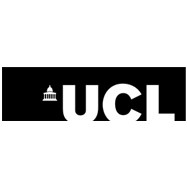QS World University Rankings 2010
08 September 2010
Commenting on the QS World University Rankings (2010) published today, Dr Wendy Piatt, Director General of The Russell Group of research-intensive universities said:
“We are pleased that these latest figures show that Russell Group universities still rank amongst the world’s leading universities. However, there are two health warnings that should be heeded.
“First, this latest league table, like all others, has its limitations and there can be no single ‘correct’ way of measuring university performance or quality.
“Second, our world-class status is under threat from other countries who are ploughing billions into their top institutions in a determined bid to overtake the UK in the rankings. Data released by the OECD only yesterday shows once again that UK leading universities are already under-resourced in comparison with their international competitors. But now, while our competitors are investing in their future skills and knowledge base, UK universities are threatened with further cuts which will make it more difficult than ever to maintain their world-class status. Not only North America but, increasingly, countries like China and Korea are investing massively in their universities and as a result their best institutions are rising rapidly up international rankings.
“The outstanding quality of our higher education and our success in punching above our weight is one of this country’s great strengths. It would be a great shame to lose this invaluable asset – our world-class universities - and the many economic, cultural and social benefits that flow from them. The UK’s success will not be sustained if we as a nation do not take action to fight off such fierce competition.”
Notes to Editors
- 14 RGUs have improved their rankings from last year.
- 19 UK universities are in the top 100 – 16 are RG institutions
- 6 UK universities are ranked 101-150 – 3 are RG institutions
- 5 UK universities are ranked 151-200 – 1 is in the RG
- It is very difficult to capture fully in numerical terms the performance of universities and their contribution to knowledge, to the world economy and to society. A recent report by the European Commission (Assessing Europe’s University-based research,2010) expressed serious doubts about the feasibility of comparing universities, and an earlier report by HEFCE (Counting what is measured or measuring what counts? 2008) found that constraints on available data mean that league tables tend to simply ‘count what can be measured rather than measuring what counts’. Making meaningful comparisons of universities both within, and across, national borders is a tough and complex challenge, not least because of issues relating to the robustness and comparability of data. The fact that an individual institution can fare quite differently in the various league tables illustrates these problems very clearly.
It is only right and proper that students, businesses and governments should be interested in the relative performance of universities. Although rankings are attractive in their simplicity, there are other ways to compare universities. For example, as an assessment of research the quality profiles generated by the UK’s Research Assessment Exercise is a more accurate indication of an institution’s research strength than any single ranking. Some experts have suggested that rather than focussing on rankings, quality profiles could be used more widely in comparing institutions (Brink, C ‘On quality and standards, Australian Universities Quality Forum, July 2009). - The UK’s total expenditure on HE amounts to just 1.3% of its GDP—a figure which is outpaced not only by the US (3.1% in 2007) and Australia and Canada but also by Korea and Japan.
-
Hamir Patel
hamir.patel@russellgroup.ac.uk
020 3816 1316
-
Stephanie Smith
020 3816 1310
 X
X


